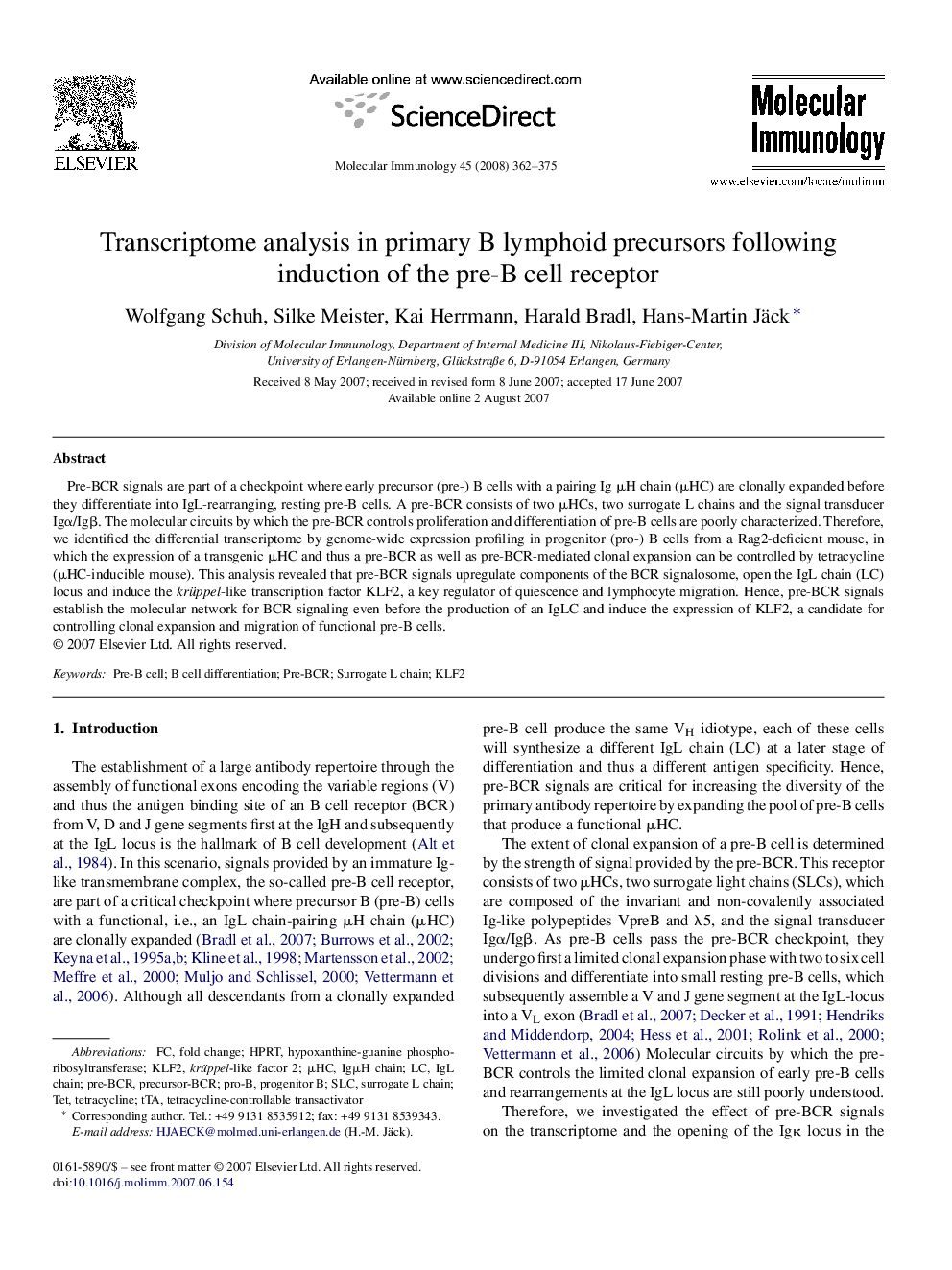| Article ID | Journal | Published Year | Pages | File Type |
|---|---|---|---|---|
| 5918056 | Molecular Immunology | 2008 | 14 Pages |
Abstract
Pre-BCR signals are part of a checkpoint where early precursor (pre-) B cells with a pairing Ig μH chain (μHC) are clonally expanded before they differentiate into IgL-rearranging, resting pre-B cells. A pre-BCR consists of two μHCs, two surrogate L chains and the signal transducer Igα/Igβ. The molecular circuits by which the pre-BCR controls proliferation and differentiation of pre-B cells are poorly characterized. Therefore, we identified the differential transcriptome by genome-wide expression profiling in progenitor (pro-) B cells from a Rag2-deficient mouse, in which the expression of a transgenic μHC and thus a pre-BCR as well as pre-BCR-mediated clonal expansion can be controlled by tetracycline (μHC-inducible mouse). This analysis revealed that pre-BCR signals upregulate components of the BCR signalosome, open the IgL chain (LC) locus and induce the krüppel-like transcription factor KLF2, a key regulator of quiescence and lymphocyte migration. Hence, pre-BCR signals establish the molecular network for BCR signaling even before the production of an IgLC and induce the expression of KLF2, a candidate for controlling clonal expansion and migration of functional pre-B cells.
Keywords
Related Topics
Life Sciences
Biochemistry, Genetics and Molecular Biology
Molecular Biology
Authors
Wolfgang Schuh, Silke Meister, Kai Herrmann, Harald Bradl, Hans-Martin Jäck,
